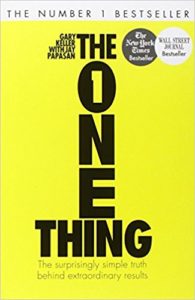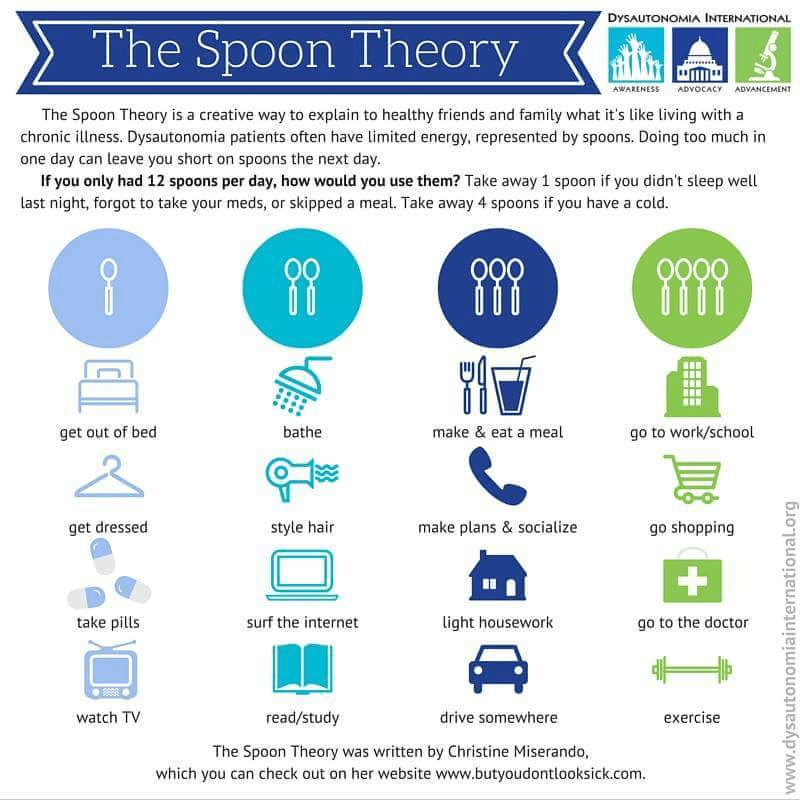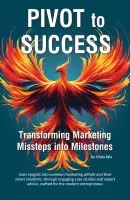- +1 512-591-8295
- [email protected]
- Mon - Fri: 9:00 - 16:00

A request must be connected to my one thing in order to consider it.And while I may have “one thing” in each important area of my life, the request needs to fit into one of those one things to be considered. That really helps you stop, take a beat to breathe and think and consider, and prioritize. Some of my other favorite concepts from the book, which you get full details upon reading: When you go as small as possible, you’re forced to stare at one thing. And that’s the whole point. A single domino is capable of bringing down another domino that is actually 50% larger. Find the lead domino, and whack away at it until it falls. The key is over time – success is built sequentially. There are six lies between you and success:
|
To-Do List
|
Success List 3. Success 5. Success 9. Success 11. Success |
 If you take this concept and apply it to the willpower and recharging discussion, think perhaps every time you use up your 12 spoons you need a full night’s rest to fully recover … consider that the days you use more than 12 spoons, you would need more than just that one night’s sleep to recharge. If you’re constantly running at 30 spoons each day, and you do that 5 days a week or more, for 4 weeks (one month) or more … with my quick math you need about 20 days just to recharge – yet the weekends in that month have only given you 8.
Balance is a myth. And all of those times you hear people talk about work/life balance is also a myth. People expect that to look like a perfectly balanced seesaw – that if you’re at 50% in work, you’re also at 50% in life. But we all know that rarely happens. You give 80 hours at work in a week, there’s just naturally less time to give in the rest of life. When you have to give 80 hours in life, there’s naturally less to give work. Most of us move back and forth between the two, more like a zig zag than a straight line.
The reason we shouldn’t pursue balance is that the magic never happens in the middle, the magic happens at the extremes. Think about the last amazing vacation you had with your family – even if it wasn’t fancy or expensive, one that you actually did NO work while you were gone. You probably have a lot of magical memories. To achieve an extraordinary result you must choose what matters most and give it all the time it demands. This requires getting extremely out of balance in relation to all other issues.
And another great concept from the book that I really enjoy, and where I see a lot of people falter (I’m sure I do to) is asking the right question. How we phrase the questions we ask ourselves determines the answers that eventually become our life. Ask a great question, find a great answer. Ask a crap question, get a crap answer. This is also where I tend to see people (myself included) make bad assumptions.
One example that comes to mind is a case I dealt with between a manager and an employee. The manager notices some things not being finished by the deadline, and not just one time but for a couple of months in a row. The manager asks themselves “does the employee not realize this is an important project?” And since they’re asking themselves, they also answer themselves, and decide the employee must not understand the importance and that explains why it isn’t complete by the deadline. The manager then calls the employee in, explains about the importance of the project, and provides what most managers would consider “verbal counseling”. On the surface this appears to be what the manager should have done.
The employee (whose direct supervisor is not the manager who called the employee in), on the other hand, has multiple competing projects which are all just as important to the other department, group, or manager who needs them, and multiple projects that are just as important to the company. The employee is already working close to 80 hours every week (for more than a year) just to be able to get the bare minimum portions of the job accomplished. The employee understands the importance of that other manager’s project. The employee also understands after 6 days each week of 12-hour days plus that 7th day of 8 hours, that already doesn’t leave a lot of time available for more projects.
As you can see, perhaps the manager’s question wasn’t the right question. “Does the employee not understand this is important?” could probably be better replaced with “I wonder what is going on preventing the employee from meeting the deadline” for a start.
In this case, the manager’s complaint, while it appeared valid on the surface, only resulted in a case of “mansplaining” to the employee, and decreased morale by an employee who was otherwise working their tail off.
I’ve also personally experienced the need to ask the right question when I was working and volunteering at Court Appointed Special Advocates (CASA) and developing reports that would be read by the judge in child abuse cases. If you did not ask the right question, or even made assumptions before you asked the question, you may not get the right answer to determine what was actually happening and what the child needed. For example, if a family was reported to CPS for their child being malnourished, and you ask the wrong question, you may not find out that they’re poor and don’t have enough money for food, they don’t have transportation to get to the food stamp office or any of the churches who offer some assistance, and the refrigerator in their rental broke and the landlord has refused to fix it for three months and they can’t afford the deposit and 1st month’s rent to move. When you ask the right question, you find out this information, and can quickly connect the family to resources that will help them get food on the table.
Have you read the book? What point resonated with you the most?
If you take this concept and apply it to the willpower and recharging discussion, think perhaps every time you use up your 12 spoons you need a full night’s rest to fully recover … consider that the days you use more than 12 spoons, you would need more than just that one night’s sleep to recharge. If you’re constantly running at 30 spoons each day, and you do that 5 days a week or more, for 4 weeks (one month) or more … with my quick math you need about 20 days just to recharge – yet the weekends in that month have only given you 8.
Balance is a myth. And all of those times you hear people talk about work/life balance is also a myth. People expect that to look like a perfectly balanced seesaw – that if you’re at 50% in work, you’re also at 50% in life. But we all know that rarely happens. You give 80 hours at work in a week, there’s just naturally less time to give in the rest of life. When you have to give 80 hours in life, there’s naturally less to give work. Most of us move back and forth between the two, more like a zig zag than a straight line.
The reason we shouldn’t pursue balance is that the magic never happens in the middle, the magic happens at the extremes. Think about the last amazing vacation you had with your family – even if it wasn’t fancy or expensive, one that you actually did NO work while you were gone. You probably have a lot of magical memories. To achieve an extraordinary result you must choose what matters most and give it all the time it demands. This requires getting extremely out of balance in relation to all other issues.
And another great concept from the book that I really enjoy, and where I see a lot of people falter (I’m sure I do to) is asking the right question. How we phrase the questions we ask ourselves determines the answers that eventually become our life. Ask a great question, find a great answer. Ask a crap question, get a crap answer. This is also where I tend to see people (myself included) make bad assumptions.
One example that comes to mind is a case I dealt with between a manager and an employee. The manager notices some things not being finished by the deadline, and not just one time but for a couple of months in a row. The manager asks themselves “does the employee not realize this is an important project?” And since they’re asking themselves, they also answer themselves, and decide the employee must not understand the importance and that explains why it isn’t complete by the deadline. The manager then calls the employee in, explains about the importance of the project, and provides what most managers would consider “verbal counseling”. On the surface this appears to be what the manager should have done.
The employee (whose direct supervisor is not the manager who called the employee in), on the other hand, has multiple competing projects which are all just as important to the other department, group, or manager who needs them, and multiple projects that are just as important to the company. The employee is already working close to 80 hours every week (for more than a year) just to be able to get the bare minimum portions of the job accomplished. The employee understands the importance of that other manager’s project. The employee also understands after 6 days each week of 12-hour days plus that 7th day of 8 hours, that already doesn’t leave a lot of time available for more projects.
As you can see, perhaps the manager’s question wasn’t the right question. “Does the employee not understand this is important?” could probably be better replaced with “I wonder what is going on preventing the employee from meeting the deadline” for a start.
In this case, the manager’s complaint, while it appeared valid on the surface, only resulted in a case of “mansplaining” to the employee, and decreased morale by an employee who was otherwise working their tail off.
I’ve also personally experienced the need to ask the right question when I was working and volunteering at Court Appointed Special Advocates (CASA) and developing reports that would be read by the judge in child abuse cases. If you did not ask the right question, or even made assumptions before you asked the question, you may not get the right answer to determine what was actually happening and what the child needed. For example, if a family was reported to CPS for their child being malnourished, and you ask the wrong question, you may not find out that they’re poor and don’t have enough money for food, they don’t have transportation to get to the food stamp office or any of the churches who offer some assistance, and the refrigerator in their rental broke and the landlord has refused to fix it for three months and they can’t afford the deposit and 1st month’s rent to move. When you ask the right question, you find out this information, and can quickly connect the family to resources that will help them get food on the table.
Have you read the book? What point resonated with you the most?
Get solid marketing strategies, designed for entrepreneurs on the track to 7-figures and beyond, right in your inbox.

This website uses cookies to ensure you get the best experience on our website. By continuing to use the website, you agree to our use of cookies. We do not share or sell your information. More info
